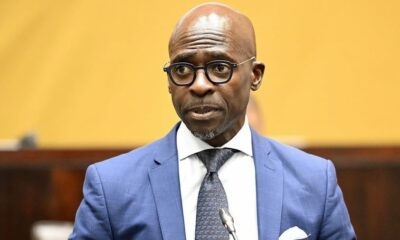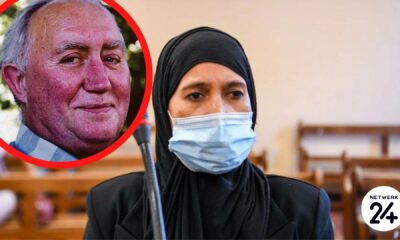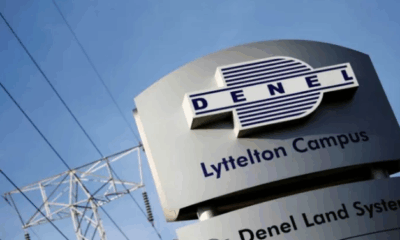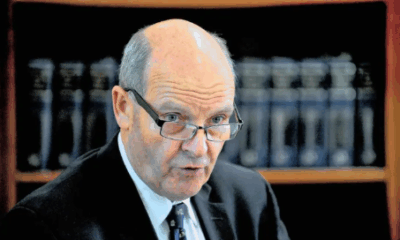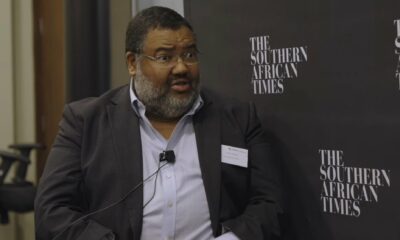News
Why Speaking Up Can Cost You Everything: The Silent Struggles of South Africa’s Whistle-Blowers
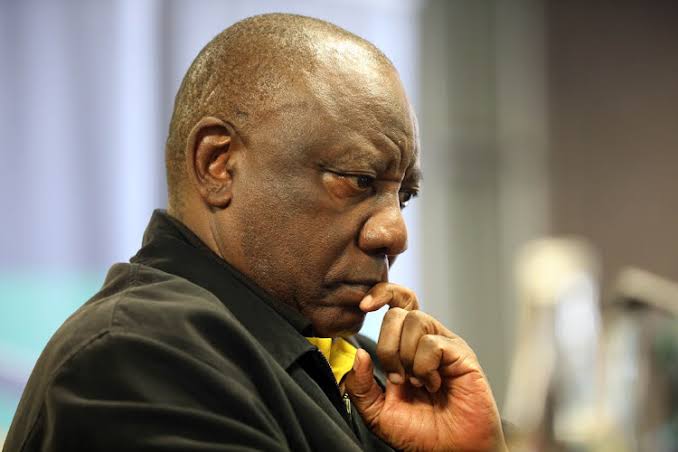
Imagine doing the right thing—only to be hunted for it. In South Africa, whistle-blowers who step forward to expose corruption aren’t hailed as heroes. Instead, they are often forced into hiding, threatened, and cut off from financial stability.
People like Patricia Mashale, a senior police administrator, learned this the hard way. After reporting corruption within the Free State police ranks to a top official, instead of action, her complaint was handed back to the very people she exposed. Now, she can’t live with her children. Her home is under constant surveillance. No job. No protection. No help.
She’s not alone.
Warrant Officer Meshack Makhubo, who bravely pursued a second docket in the Senzo Meyiwa murder investigation, found himself under attack—not in court, but in his own home. That wasn’t a random break-in. It was a targeted message: stay silent or pay the price.
Laws on Paper, But No Safety in Practice
South Africa has a toolbox of anti-corruption laws. The Prevention and Combating of Corrupt Activities Act, Anti-Money Laundering Legislation, and the National Prosecuting Authority Amendment Act were all bolstered following the Zondo Commission’s findings.
On paper, they look promising. In reality, whistle-blower protections are barely functional.
Dr. Devoshum Moodley-Veera, a researcher and integrity activist, argues that laws alone are not enough. The Protected Disclosures Act, which should shield whistle-blowers, lacks teeth. It doesn’t even assign a specific institution to deal with complaints.
What does that mean for everyday citizens? Retaliation. Dismissals. Intimidation. SLAPP lawsuits meant to silence and bury the truth.
Even when people want to speak out, many decide not to. The risk is just too great.
The Cost of Courage: Lives Upended, Justice Delayed
KwaZulu-Natal violence monitor Mary de Haas has seen it all. She knows the price whistle-blowers pay. Illegal dismissals, court battles they can’t afford, and constant fear for their lives. And when they do get to court? Justice is slow, expensive, and often toothless.
According to the Feinstein and Devine report, South Africa meets only 5 out of 20 international standards for effective whistle-blower laws. That’s not a gap—that’s a chasm.
Even the Transparency International Corruption Perception Index paints a bleak picture. South Africa scored 41 in 2023, unchanged from the previous year and still below the global average of 43. Despite some high-profile convictions, the system remains sluggish and poorly resourced.
Some Progress, But Not Nearly Enough
President Cyril Ramaphosa has tried to highlight wins: over 1,300 corruption convictions, R14.18 billion in assets frozen, and several prominent figures—including former ministers—charged.
Yes, there has been progress. Yes, ABB was forced to pay billions in reparations. Yes, civil society launched tools like the Zondo Tracker to monitor accountability.
But let’s not sugarcoat it.
Too many whistle-blowers have paid the price with their livelihoods, safety, and peace of mind. The root problem isn’t just corruption—it’s a broken system that fails those brave enough to confront it.
A Fight That Requires All of Us
If we’ve learned anything from the stories of Mashale, Makhubo, Deokaran, and countless unnamed others, it’s that whistle-blowing in South Africa is not for the faint of heart. It takes enormous courage—but it also demands protection, support, and justice.
And that responsibility doesn’t sit solely with the state. Civil society, the private sector, and ordinary citizens must step up. We must advocate for dedicated whistle-blower agencies, legal reforms that reflect South Africa’s unique challenges, and the political will to enforce them.
Speak Up, Stand By
Whistle-blowers are not enemies of the state. They are defenders of democracy. Their voices hold the power to reshape a nation drowning in dishonesty. But until South Africa builds a framework that protects rather than punishes them, corruption will always have the upper hand.
Let’s not let silence be safer than the truth.
{Source: IOL}
Follow Joburg ETC on Facebook, Twitter , TikTok and Instagram
For more News in Johannesburg, visit joburgetc.com

